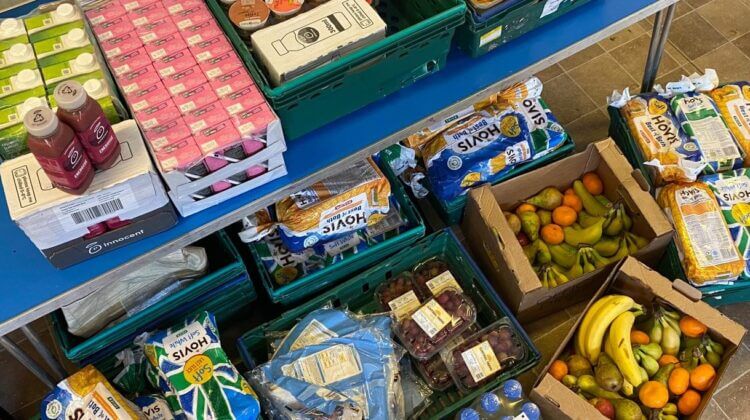British Food Fortnight with Greenwich Co-operative Development Agency
As part of our series exploring the British Food stories of some of our borrowers for British Food Fortnight, we spoke to Claire Pritchard CEO of the Greenwich Co-operative Development Agency – the GCDA – about what British Food means to them.
Co-op & Community Finance (CCF) has been a supporter of GCDA since its beginnings in 1982. GCDA, unlike many other Co-op Development agencies established at the same time, has thankfully stood the test of time and is now more relevant than ever. Despite the long relationship It wasn’t until 2016 that they first approached us for a loan to help them grow into new areas of trading to help underpin their core co-op development work. At that time we were able to broker a deal through the Co-op Loan Fund, a fund established in 2006 managed by CCF on behalf of a consortium of Co-op Retail Societies, and also fellow social lender Big Issue Invest. Since then, through CCF, the Co-op Loan Fund has been able to support them twice more as they have expanded and diversified further.
CEO Claire says, “Traditionally, we’ve been a co-op and social enterprise development agency. We’ve broadened that scope and now work in four main areas – co-ops, social enterprise and community business support; public health; adult learning; and anchor buildings. These are hubs from where we deliver our programmes. Food is and has been a key theme across all of these areas for many years now., and its fair to say we grew our agency through food.
We started with a key aim to increase access to affordable food across our communities. As soon as you look at it like that, you have to come back to sustainability. What is the impact of our food on us, on our environment, our health? The role of food in public health is huge and so that impacts onto both individuals and the economy too.
Food security matters too. We started asking what can be grown locally, what’s the quality of that, how is it produced, what is the impact of the production on the communities where it grows, on the local economy. It’s all interconnected.
We know that urban areas like ours are never going to be entirely self sustaining, but there is some really good primary production in and around Greenwich and we’ve had a hand in a good number of those ventures. We have Keats Organics – a small, half-acre farm in Bexley, growing organically raised, hand tended salad, herbs and vegetables – that we put funding into. And then there’s Sitopia Farm which is really exciting too, it’s a social enterprise growing food to advance social, environmental and health objectives, based on a book called Sitopia which is all about how food can save the world. There’s also local coffee roasting, and the fantastic city farm London Woodlands Farm Trust which hosts Sitopia. There were great community food assets here before we started and we’re proud to have been a catalyst for change and development from what was a fantastic, strong food foundation.
After we’ve thought about production, there’s supply and distribution. It can be hard for people in our area to get hold of good quality fresh fruit and vegetables – local shops offer very little (if any at all) fresh food produce and it is typically stocked below the eye-line on the bottom of shelves). Before COVID, we facilitated fruit and vegetable stalls in four local areas, selling a selection of seasonal fruit and vegetables. Each week a total of 500kg fruit and vegetables was sold at affordable prices to 300 residents and families. As we move out of the pandemic, we are exploring ways to ensure fresh produce is made available to people.
Greenwich is a place of huge diversity and food gives us ways to tap into, share, and celebrate our diverse cultures, it supports real community and social cohesion. Awareness days give us a real opportunity to have these conversations. When you’re an organisation like us, curating a range of projects, anchor events allow you to tell a story alongside those things. They mean we can focus on a specific thing and then create all our other activities around it and have a bigger impact. So, for British Food Fortnight, we might have cooking lessons using locally grown veg as part of our adult learning activity, along with information about nutrition for our health work, and we’d focus these activities in our hub buildings and out presence at local markets.
Local people with an interest in food can join in with our food related activities and cookery clubs through the fortnight and all year round – it’s all on our website.
And if people are going to be visiting Greenwich during British Food Fortnight, we’d love to chat about the importance of food in Greenwich. We’ll be at our market in Woolwich, at the Royal Arsenal on the 24th September from 10am-3pm.

